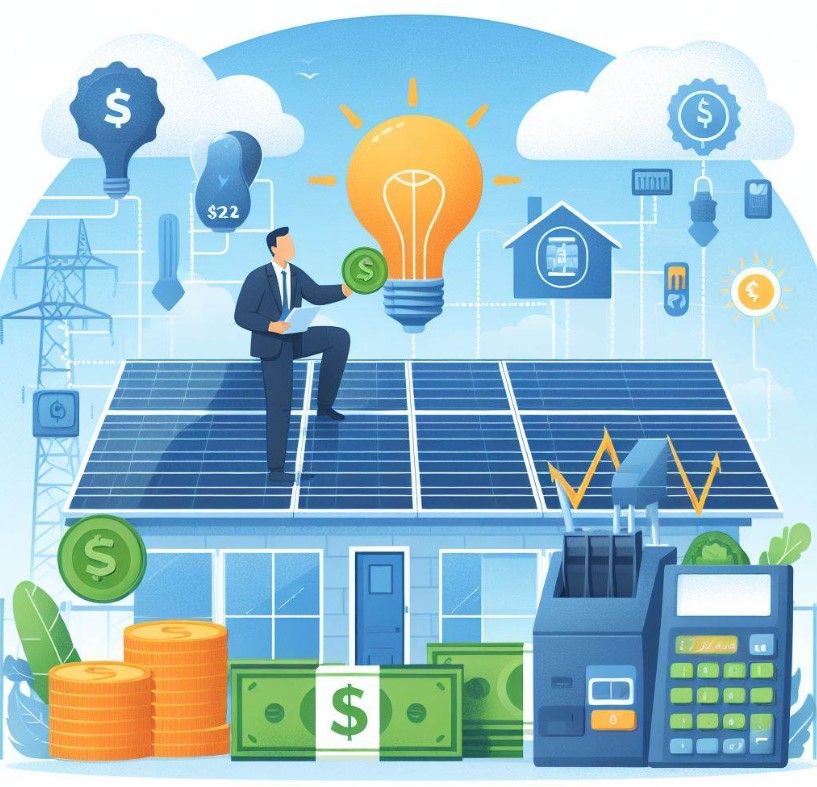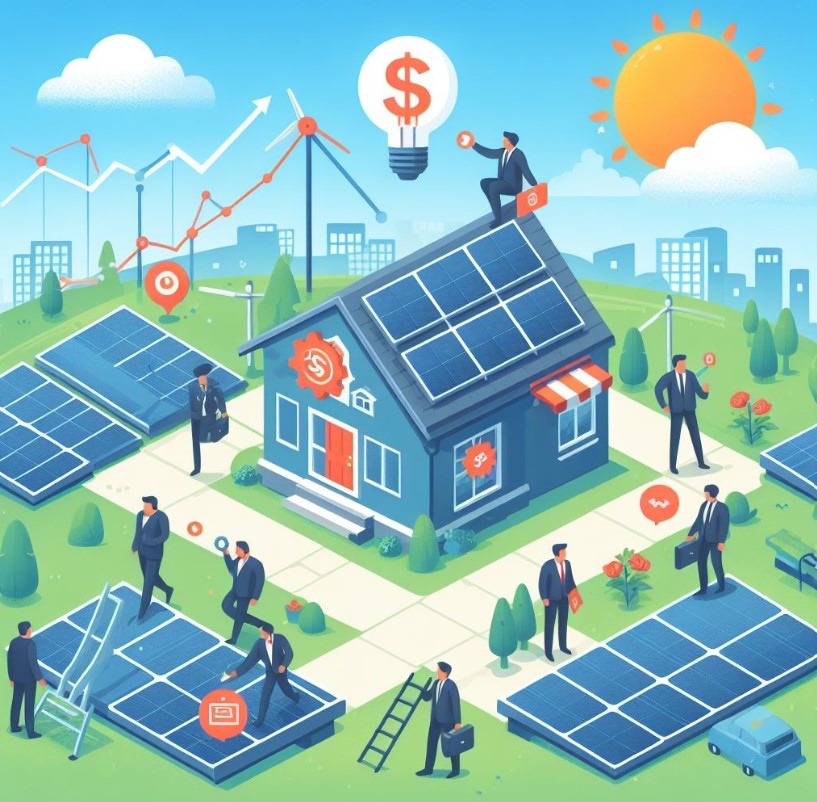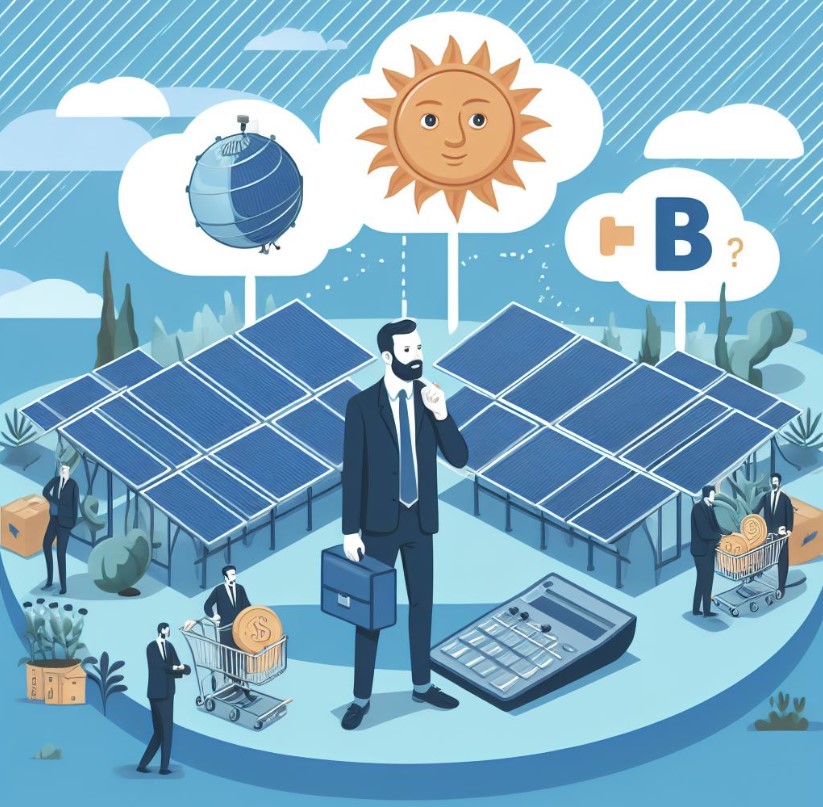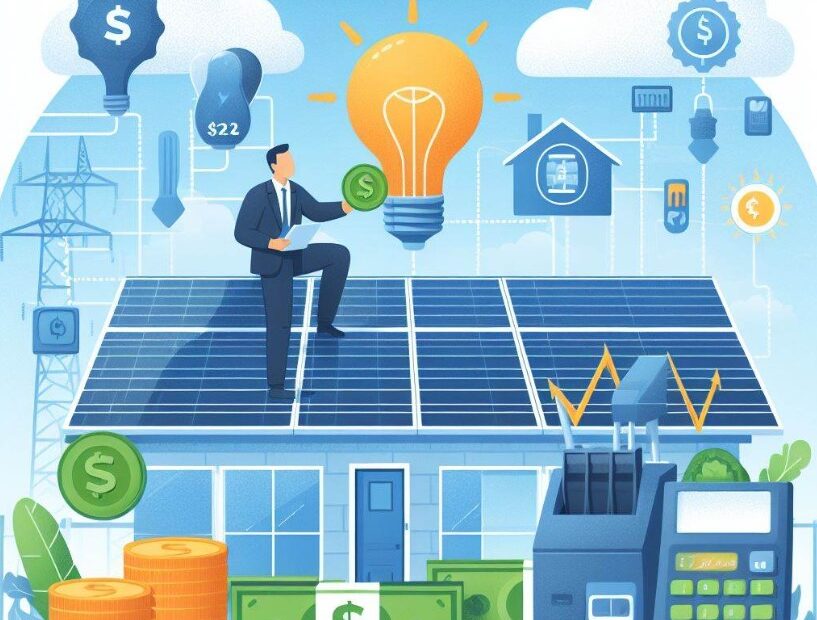This article will explain How To Choose A Solar Installer To Finance B2B? Choosing the right solar installer for your B2B financing needs is a crucial step towards sustainable energy solutions. The right partner not only ensures a smooth installation process but also optimizes financial benefits. It’s vital to select a company that understands the unique aspects of B2B transactions and can provide tailored solar financing options.
Key Takeaways
- Research and verify the installer’s experience and credentials.
- Evaluate their financing options and ensure they match your business needs.
- Assess their project track record and customer testimonials.
- Confirm they offer comprehensive post-installation services.
How To Choose A Solar Installer To Finance B2B?
To choose a solar installer for B2B financing, evaluate their experience, check financial options, analyze past projects, and ensure they offer post-installation support. Selecting a knowledgeable and reliable installer maximizes your investment and aligns with your business’s energy goals.

Understand Your Business Needs
Understanding your business needs is the first step in selecting the right solar installer. Assess your energy requirements, financial goals, and the scale of the solar project. A clear understanding helps in communicating your expectations to the solar installer effectively. Consider the size of your premises, expected energy savings, and long-term sustainability goals.
In the context of B2B, your choice should align with not just immediate, but long-term business objectives. Evaluate the potential for future expansions and ensure the solar installer can accommodate growing energy needs. This strategic approach aids in maximizing the return on investment and achieving sustainability targets.
Assess Installer Credentials
When selecting a solar installer, their credentials are paramount. Look for certifications from recognized industry bodies such as the North American Board of Certified Energy Practitioners (NABCEP). A certified installer demonstrates a commitment to quality and adherence to industry standards.
Moreover, explore the installer’s history and experience in the B2B sector. A reputable installer should have a robust portfolio of commercial projects and testimonials from other businesses. This experience ensures they understand the complexities and unique requirements of B2B installations.
Review Financing Options
Financing is a critical aspect of solar installations, especially in B2B contexts. Analyze the different financing options the installer offers, such as leases, power purchase agreements (PPAs), and loans. Each option has its advantages and implications for cash flow and tax incentives.
A good solar installer will provide transparent information and help you understand the best financing route for your business. They should offer customized solutions that align with your financial strategy and help maximize returns on your solar investment.
Evaluate Project Execution and Management
The installer’s ability to manage and execute projects is crucial. Inquire about their project management processes and communication protocols. A structured approach ensures that the installation is completed on time, within budget, and to the agreed specifications.

Ask for case studies or references from previous B2B projects. This will give you insight into their capability to handle projects similar to yours and their level of customer satisfaction. A reliable solar installer should have a track record of successful installations and positive feedback from other businesses.
Post-Installation Services
After the installation, ongoing maintenance and monitoring are essential to ensure the solar system operates at peak efficiency. Check if the solar installer offers comprehensive post-installation services, including system monitoring, maintenance, and warranty support.
A partnership with a solar installer doesn’t end with the installation. Choose a provider that offers extensive post-installation support to safeguard your solar investment and ensure uninterrupted energy production.
Local Regulations and Incentives
Familiarity with local regulations and incentives is essential for a solar installer. They should be knowledgeable about zoning laws, building codes, and permit requirements specific to your area. Additionally, an experienced installer can guide you through available solar incentives, rebates, and tax credits.
This knowledge can significantly impact the cost-effectiveness and implementation of your solar project. An installer with in-depth local expertise can streamline the approval process and maximize financial incentives.
Sustainability and Environmental Impact
Adopting solar energy in your business goes beyond financial savings; it’s a step towards reducing your carbon footprint and enhancing your company’s sustainability profile.
A responsible solar installer will guide you through the environmental benefits of your installation, helping your business contribute to a greener planet. Discuss with your installer the types of solar panels and materials they use and their environmental impact.
Furthermore, inquire about the lifecycle management of solar products. An eco-conscious installer should offer solutions for recycling or responsibly disposing of solar panels at the end of their lifespan.
By choosing an installer with a strong commitment to environmental sustainability, you align your B2B operations with global eco-friendly practices, enhancing your brand image and customer appeal.
Ongoing Communication and Transparency
Clear and ongoing communication with your solar installer is essential for a smooth partnership. Post-installation, your installer should provide regular updates and performance reports regarding your solar system. This transparency helps in identifying any issues early and ensures your system is operating optimally.

Furthermore, a reputable solar installer will maintain open lines of communication for any queries or concerns you may have post-installation. They should offer customer support and education on how to best utilize your new solar system, including tips on energy efficiency and how to monitor your system’s performance. This level of support empowers you as a business owner and ensures you get the most out of your solar investment.
Technological Advancements and Innovations
Staying ahead with the latest technological advancements is key to optimizing your solar investment. Discuss with your solar installer the latest trends and innovations in solar technology.
From high-efficiency solar panels to smart energy management systems, your installer should be able to provide the latest solutions that enhance energy production and savings.
Moreover, explore options for integrating your solar system with other renewable energy sources or smart building technologies. An installer at the forefront of solar innovation can offer tailored solutions that fit your unique business needs, ensuring you benefit from the most advanced and efficient solar technologies available.
Customized Solar Solutions
Each business is unique, and a one-size-fits-all approach does not apply to solar installations. Your solar installer should provide customized solar solutions that cater to your specific business model, operational requirements, and energy goals. This includes designing a system that fits your physical premises, aligns with your energy consumption patterns, and scales with your business growth.
Additionally, a proficient installer will conduct a detailed energy assessment to identify opportunities for energy efficiency improvements beyond the solar installation. By providing a tailored approach, your solar installer can ensure that your solar system complements your business operations, maximizing efficiency and cost savings.
Conclusion
Selecting the right solar installer to finance B2B projects requires thorough research and consideration. A suitable partner understands your business needs, offers appropriate financing options, and has a proven track record in B2B installations.
They should also provide comprehensive post-installation services and be well-versed in local regulations and incentives. By carefully evaluating these factors, you can ensure a successful solar installation that meets your financial and energy goals, ultimately leading to long-term sustainability and efficiency for your business.
Remember, the decision to go solar is not just about today’s needs but also about ensuring a greener, more cost-effective future for your company.
Frequently Asked Questions
How can solar energy contribute to my company’s sustainability goals?
Solar energy reduces reliance on fossil fuels, lowers carbon emissions, and can improve your company’s environmental footprint, aligning with broader sustainability goals.
Can solar installations be customized to fit any type of business?
Yes, reputable solar installers can customize solar solutions to match your specific business needs, premises size, and energy goals, ensuring the system is efficient and cost-effective.
How important is it for a solar installer to understand local regulations and incentives?
It’s crucial. Knowledge of local regulations ensures your project complies with all legal requirements while understanding incentives can significantly reduce installation costs and improve your return on investment.
What should I look for in a solar installer’s post-installation services?
Look for comprehensive services including system monitoring, maintenance, and support. A good installer will provide ongoing communication and transparency, ensuring your system operates at peak efficiency.
A multifaceted professional, Muhammad Daim seamlessly blends his expertise as an accountant at a local agency with his prowess in digital marketing. With a keen eye for financial details and a modern approach to online strategies, Daim offers invaluable financial advice rooted in years of experience. His unique combination of skills positions him at the intersection of traditional finance and the evolving digital landscape, making him a sought-after expert in both domains. Whether it’s navigating the intricacies of financial statements or crafting impactful digital marketing campaigns, Daim’s holistic approach ensures that his clients receive comprehensive solutions tailored to their needs.









